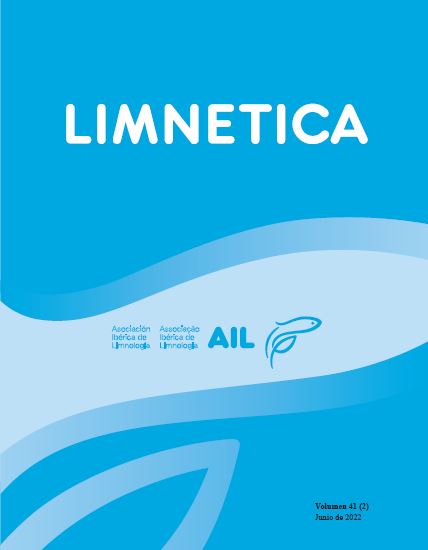Using an unmanned aerial vehicle (UAV) for lake management: ecological status, lake regime shift and stratification processes in a small Mediterranean karstic lake
Résumé
High-resolution remote sensing imagery by unmanned aerial vehicles (UAVs) has been used as a tool for the environmental management of natural resources. Monitoring programmes that evaluate the ecological status of water bodies according to the Water Framework Directive (WFD) involve significant costs and sampling efforts that can be reduced by using UAVs. UAV imagery was used to measure some metrics of the “macrophytes and phytobenthos” biological quality element (BQE), which is required to assess the ecological status of European lakes; e.g. the percentage cover of hydrophytes and helophytes. Eight UAV flights took place during an annual cycle (July 2016 to July 2017) in a small karstic lake located in southeast Spain. Limnological surveys of physicochemical (temperature, conductivity, dissolved oxygen, pH) and biological (pigments) parameters were simultaneously performed to correctly interpret the UAV images. For each flight performance, an orthomosaic of georeferenced RGB images was obtained, and the different features of interest were monitored and quantified by an automated identification and classification system (the LAIC software). The UAV images allowed us to not only evaluate the lake’s ecological status by measuring macrophyte metrics, but to also detect relevant ecological events for environmental management. A gradual burial process of charophyte meadows by the proliferation of periphytic cyanobacterial was detected in an early state by UAV images. Stratification processes, such as hypolimnetic sulphur bacteria blooms or metalimnetic white colloidal layers, were also observed by UAV imaging. We conclude that UAV imagery is a useful tool for environmental lake management.
Téléchargements
Publié-e
Numéro
Rubrique
Licence
Los autores que publican en esta revista están de acuerdo con los siguientes términos:
- Limnetica está bajo una licencia de Creative Commons Atribución-NoComercial 4.0 Internacional.
b. Los autores pueden establecer por separado acuerdos adicionales para la distribución no exclusiva de la versión de la obra publicada en la revista (por ejemplo, situarlo en un repositorio institucional o publicarlo en un libro), con un reconocimiento de su publicación inicial en esta revista.
c. Se permite y se anima a los autores a difundir sus trabajos electrónicamente (por ejemplo, en repositorios institucionales o en su propio sitio web) antes y durante el proceso de envío, ya que puede dar lugar a intercambios productivos, así como a una citación más temprana y mayor de los trabajos publicados (Véase The Effect of Open Access) (en inglés).


